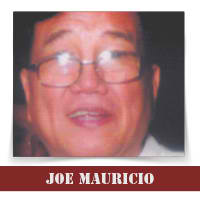
By: Joe Mauricio
We are done with the political primary elections season. But the general election is still three months away, and we have an important word of advice for the candidates across America–CALM DOWN.
Political campaign ads this year are abrasive and negative. Perhaps this was to be expected. With the pandemic disrupting normal routines, in mainstrean and local media of TV, print and social media ads, are more important than ever. And with emotions running high, candidates are likely to look for messages that tapped into those emotions.
We would like to issue a challenge to every single candidate running for the local, state, and national levels of government for the upcoming fall elections. Be proactive and transparent in your advertising campaigns. Tell us about your background, your values in life, your political/community/civic experiences and how it prepares you for the offi ce you are running for.
Tell us more your stance on issues, but not in a way that denigrates those who might have good faith disagreements with you. In other words, stop yelling and being emotional. Pull up a chair and have a conversation with us, if only fi guratively. Refusing to engage in destructive politics then take more than pledges from candidates or their campaigns. It takes an effort on behalf of voters, too. We have to be willing to engage with issues.
Ideologically driven negative ads are nonsense precisely because they bear no relations to what good government is like. They are from the fantasy land of politics where greedy evildoers crawl over one another in their quest to harm honest people.
Most people in politics serve for honorable reasons. They want to represent and serve their constituents. And their campaigns for offi ce should refl ect that.
THE HIROSHIMA BOMBING ANNIVERSARY
The Hiroshima Bombing didn’t just end the World War II. It kick-started the Cold War.
By August, 1945, relations between the Soviet Union and the United States had deteriorated badly. The Potsdam Conference between Harry S. Truman, Joseph Stalin and Winston Churchill ended just four days before the bombing of Hiroshima. The meeting was marked by recriminations and suspicions between the Americans and Russians. Russian armies were occupying most of the Eastern Europe; Truman hoped that U.S. atomic monopoly might offer diplomatic leverage with the Soviets. The dropping of the atomic bomb on Japan can be seen as the fi rst shot at the Cold War.
U.S. offi cials believed that they could use their atomic monopoly for diplomatic advantage. They had little time to put their plan into action. By 1949, the Soviet had developed their own atomic bomb, and the nuclear arms race began.
 VIA Times – August 2020 Issue Vital News, Vibrant VIews for Asian Americans in Chicago & Midwest
VIA Times – August 2020 Issue Vital News, Vibrant VIews for Asian Americans in Chicago & Midwest

